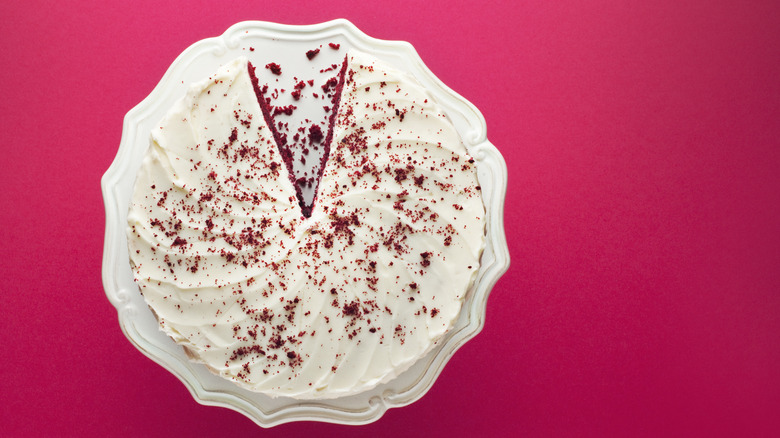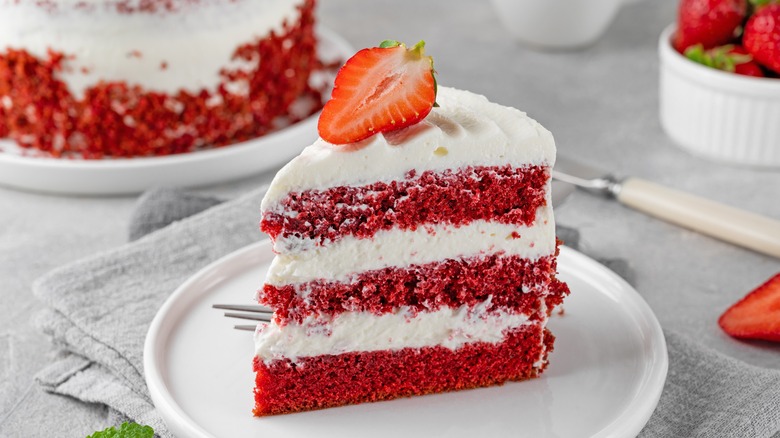Why Your Experimental Ingredient Swap Probably Dried Out Your Cake
Baking a cake is an art that requires precision and attention to detail. From the temperature of the ingredients to the cooking time, everything must be just right to achieve indulgent layers. But one of the most important aspects of baking a cake is using the right ingredients. Inexperienced yet eager bakers may make the mistake of substituting ingredients without understanding the impact they can have on the final product. In particular, substituting ingredients in cake batter can often result in dry, stodgy layers.
Cake recipes are carefully crafted to create moist, fluffy layers that melt in your mouth. Achieving this texture requires a balance of ingredients, including flour, sugar, eggs, and fats. When one of these ingredients is substituted or not added in the correct amount, it can throw off the delicate balance.
Ultimately, the key to a moist, tender cake is to follow the recipe carefully. But if you must substitute an ingredient, it's important to understand how it will impact the batter's overall ratio. For example, if you're substituting a liquid sweetener with sugar, you may need to add additional liquid to compensate for the lost moisture.
Avoid substituting these key ingredients
One of the most common substitutions that inexperienced bakers make is using a different type of flour. Substituting cake flour or all-purpose flour with whole wheat flour might seem like a healthy choice, but it can have disastrous consequences for your cake. Whole wheat flour is denser than all-purpose flour, which means it absorbs more liquid. This can result in dry, heavy layers that lack the tender crumb that makes a cake so delicious.
Another common substitution is using a different type of fat. Swapping out oil for butter might seem like a smart choice for a more flavorful cake, but it too can negatively affect the texture. Butter contains water, which means using it instead of oil will contribute less fat to the cake batter. So, the cake will not get the moisture and benefit of using pure fat.
Sugar is also an important ingredient in the cake batter. It not only adds sweetness but also helps to retain moisture. Substituting sugar with a sugar substitute, such as stevia, can result in dry layers that lack the tender crumb that makes a cake so delicious. So, start baking by using a popular or highly-rated and tested recipe. Once you are confident in the cake, you can begin to experiment with substitutions and modifications, but do so with an understanding of how your cake could be affected.

